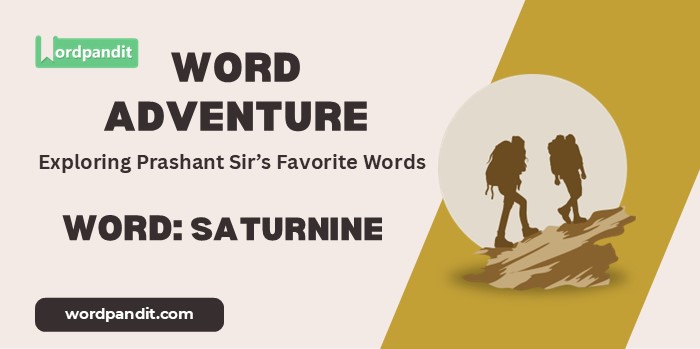Word Adventure: Saturnine
The Headline
“From Ancient Planets to Modern Moods: The Celestial Journey of ‘Saturnine'”
The Scoop
In the constellation of English vocabulary, some words carry the weight of centuries of human observation and belief. ‘Saturnine’ is one such term – a word that connects ancient astrological wisdom with human temperament. Join me as we explore how this celestial adjective came to describe a particular kind of earthly disposition.
Let’s Break It Down
The Plot Thickens
The story of ‘saturnine’ takes us on a journey through ancient astronomy, medieval medicine, and astrological belief. In classical astrology, Saturn was considered the most distant and slowest-moving of the visible planets, associated with melancholy, restriction, and contemplation.
Medieval physicians believed in the theory of the four humors, where different bodily fluids influenced personality traits. The “melancholic” humor was associated with Saturn, leading to the term ‘saturnine’ being used to describe people with a slow, serious, and gloomy disposition.
Fascinatingly, the word also had a connection to lead poisoning, as alchemists associated the metal lead with Saturn. Workers suffering from lead poisoning often exhibited a morose disposition, reinforcing the connection between Saturn and gloominess.
Word in the Wild
The Twist
Here’s a thought-provoking aspect of ‘saturnine’: while modern usage focuses on gloominess, Saturn in astrology wasn’t purely negative. The planet was also associated with wisdom, deep thinking, and mastery gained through experience. This suggests that a saturnine disposition might not just be about melancholy, but could indicate a depth of thought and maturity that comes from serious contemplation. Perhaps being saturnine isn’t just about being gloomy – it’s about having the gravity of a sage!
Make It Stick
Saturnine: When your mood moves as slowly as the ringed planet itself!
Your Turn
Think about the saturnine characters you’ve encountered in literature, film, or life. What makes their melancholy compelling or meaningful? Have you ever experienced periods of saturnine contemplation that led to valuable insights? Share your thoughts in the comments below. Let’s explore how this temperament shapes our understanding of human nature!
Down the Rabbit Hole
- Curious about astrological influences on language? Explore words like ‘mercurial’, ‘jovial’, and ‘lunatic’.
- Interested in the history of temperaments? Research the four humors theory and its impact on psychology.
- Want to dive deeper into celestial etymology? Discover how other planets have influenced our vocabulary.
The Last Word
As we conclude our exploration of ‘saturnine’, I hope you’ve gained appreciation for this word that bridges the cosmic and the personal. It reminds us that our modern understanding of human nature has deep roots in ancient wisdom and observation. The next time you encounter someone with a slow, contemplative disposition, remember – you’re not just observing melancholy, you’re witnessing a temperament as old as our observation of the stars! Until our next word adventure, this is Prashant from Wordpandit, encouraging you to embrace both the light and shadow in our rich vocabulary!














